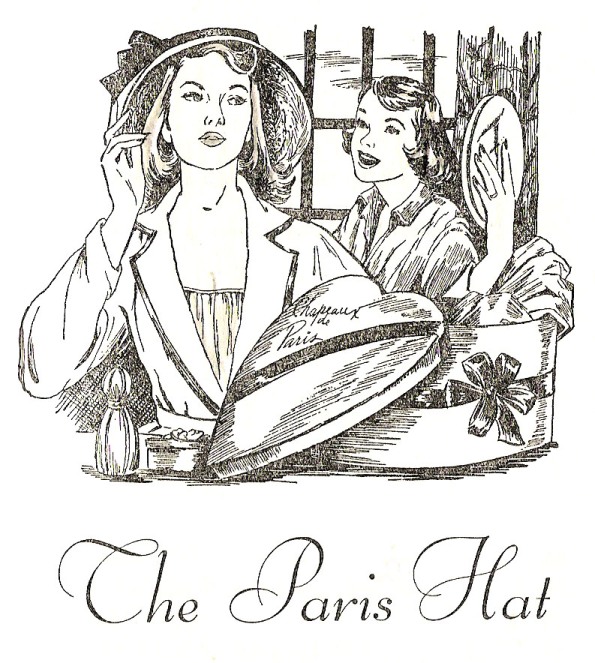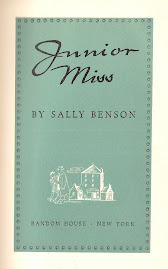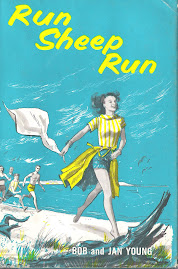 Title: Say Hello, Candy
Title: Say Hello, CandyAuthor: Bianca Bradbury
Publisher: Coward McCann, 1961
Jacket Artist: Paul Frame
Setting: Carlisle, Maine
Provenance: Formerly the propery of the Jessie E. McCuffy Memorial Library, Dixon, Missouri
Fun: sulky teens; fake antiques; summer people vs. townies
Quote: "You've changed, Funny-face. Do you know that?"
"How?" she asked.
"You're still as gorgeous as ever. I think you're the best-looking female woman I know. But you're more serious. I don't know, I look at you and I think, wheels are turning inside her head. You never used to have wheels inside your head. You were just my girl, an awful sweet, empty-headed doll."
The jacket illustration is striking, isn't it? I have it on my Flickr photostream and it gets far more hits than the other illustrations in the set. Although something about Candy's hair irritates me every time I look at it.
Say Hello, Candy starts with a serious situation. Candy Andrews' father has been paralyzed in a car accident. In 1961 this relegates him to the status of a cripple -- unable to go back to work or even navigate much of the outside world (in one scene he has to eat in his hotel room because the restaurant can't accomodate him.) Nevertheless, as a parental figure in a teen novel, he is not bitter. Since their income is gone, Candy's family moves from the pleasant suburbs of Long Island to Carlisle, Maine, her father's hometown, where they had formerly summered. They hope to settle in as permanent residents, with Candy's mother supporting the family by selling antiques. The drama of the book is provided by Candy's slow adjustment to this disaster. She knows she ought to be cheerful and helpful to her mother, but she just can't force herself to feel grateful and count her blessings:
Older people think that if they can put things in words then that takes care of everything. Her parents acted as though they were resigned to any blows fate handed out to them. I'm not going to give in, she thought, lying stiff and rebellious. I'm not going to sit around waiting for the night to come so the day will end. I'm going to fight! My life's not over!
Carlisle is so remote it doesn't even have television, and the only people Candy knows there are the "summer people." The story progresses in an episodic fashion. Candy helps her mother stock the antique store and then works behind the counter, sometimes enjoying it and sometimes resenting it. She has a confusing number of romantic encounters with both town and summer boys, all of whom seem to surface and vanish without much significance. She almost cheats a woman who buys a fake antique chest, but at the last moment feels remorse. She quarrels with her mother and makes up. Even on page 175, Candy is still whispering "I hate them, I hate them" as the summer people drive by in their cars, laughing carelessly (is there any other way to laugh?) And then miraculously, in the next and last chapter, she's fully accepted life in Carlisle and steady friendship/romance with a town boy.
Never mind the ending. The most powerful part of Say Hello, Candy, is Candy's discontent, a lightning rod that runs through the book, dominating it as she dominates the cover.











No comments:
Post a Comment